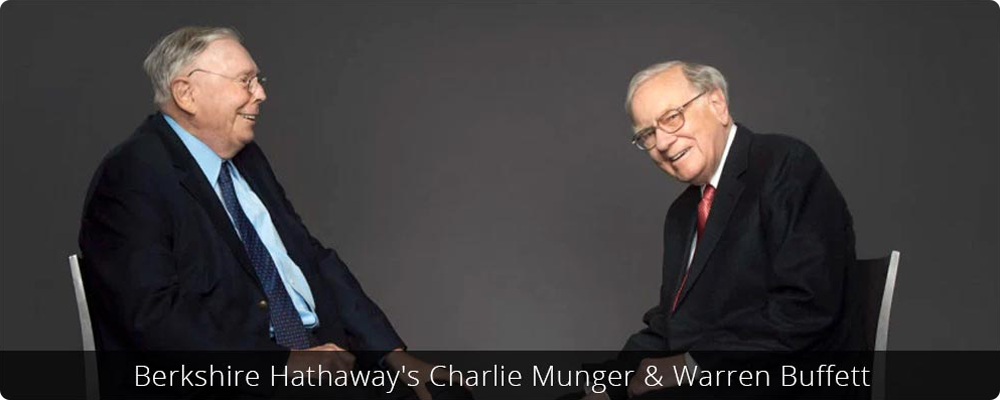Warren Buffett's 2016 Shareholder Letter: Top 5 Lessons for All Investors
March 08, 2017
|
There are hardly any things that are more valuable to an investor, well the long term ones, than to read the legendary Warren Buffett’s annual letter to the shareholders of Berkshire Hathaway. Remember, it’s not some ordinary annual letter of a company that just gives updates about its operations, it’s a lot more. These letters come loaded with ‘holy’ investment advice and there is a lot that investors can learn from the man’s signature wit and his perceptive thinking. This time’s letter was no different. He covered his usual range of topics ranging from performance of Berkshire Hathaway and its operating units to prospects of the US economy to advice for corporate executives and individual investors.
The entire 28 pages of the letter are worth reading, but, as a start of a new practice, we’ve collected some of the most important highlights of the letter, particularly relevant from the Indian investors’ point of view. Please do have a look. We hope you will make the most of it:
On blindly paying just for goodwill or names
Excerpt: “As is the case in marriage, business acquisitions often deliver surprises after the “I do’s.” I’ve made some dumb purchases, paying far too much for the economic goodwill of companies we acquired. That later led to goodwill write-offs and to consequent reductions in Berkshire’s book value.”
Interpretation: When buying stocks of companies, first look at what the company can become in the future, what can it grow into in the future, and not just whether the company is a ‘known’ one or not. Buying a known stock, just for the sake of its brand can prove to be laggard investment. Hence, you as an investor should not, for the comfort the brand name and reputation, pay a very high price for the goodwill of the company. Remember his famous quote on the topic, “It’s better to buy a wonderful company at a fair price than a fair company at a wonderful price.” holds true every single time! So, it is wise to focus on growth prospects of the company and not only its company name.
On buying stocks, during fear & panic, and not selling them
Excerpt: “Charlie and I have no magic plan to add earnings except to dream big and to be prepared mentally and financially to act fast when opportunities present themselves. Every decade or so, dark clouds will fill the economic skies, and they will briefly rain gold. When downpours of that sort occur, it’s imperative that we rush outdoors carrying washtubs, not teaspoons. And that we will do.”
Interpretation: India being an emerging economy has always been a victim of collateral damage. This happens especially during geo-political events, like say the Brexit Referendum, or say Indo-Pak tensions, etc. The stock market is influenced not only by these events, but also due to domestic ‘reforms’ like the recent Demonetization episode. Everyone knows that the markets tanked post Demonetization and the repercussions were seen in the stock market till the mid of December. Everyone during the time was selling in panic and anxiety, thereby following the herd mentality. But for a long term investor, this opportunity was nothing but gold. This was the time when superb businesses were starting to be available at bargain valuations, not because of any change in the model of the company, but simply the sentiments, which were bound to reverse post the dust settling. That is exactly what happened. Any investor who would have bought shares (quality companies) would have become the one of biggest winners of the market in terms of percentage gains.
On not only enjoying, but riding your country’s growth wave
Excerpt: “You need not be an economist to understand how well our system has worked. Just look around you. See the 75 million owner-occupied homes, the bountiful farmland, the 260 million vehicles, the hyper-productive factories, the great medical centers, the talent-filled universities, you name it – they all represent a net gain for Americans from the barren lands, primitive structures and meager output of 1776. Starting from scratch, America has amassed wealth totaling $90 trillion.”
Interpretation: Considering this from India’s point of view, our country’s GDP has grown from around $40 Billion in 1960 to around $2100 Billion in 2017 i.e. a 5150% growth in less than 60 years. The Sensex has grown from 100 to 29000 in less than 40 years. There is no reason why we can’t grow in the future like we did in the past. Spending power is increasing, education is increasing, cities are widening, infrastructure is mushrooming, people are travelling abroad, internet penetration is increasing, more and more companies are opening up and more and more companies are flourishing. This is nothing but pure growth. So if you as an individual can be a part of this growth, then why not participate from the most direct and sensible route i.e. via equities? If India grows, earnings have to grow. India saves over $650 Billion a year. In four to five years, this figure will go up to a $1000 Billion. Even if 10% of that money flows into the equity markets, about a $100 Billion of stocks are set to be purchased. Isn’t that huge? Remember, India is not going to stop growing, and if that is the case, why can’t you make the most of it?
On Fear or Greed and not letting emotions come in way while making investment
Excerpt: “Moreover, the years ahead will occasionally deliver major market declines – even panics – that will affect virtually all stocks. No one can tell you when these traumas will occur – not me, not Charlie, not economists, not the media. Meg McConnell of the New York Fed aptly described the reality of panics: “We spend a lot of time looking for systemic risk; in truth, however, it tends to find us.”
During such scary periods, you should never forget two things: First, widespread fear is your friend as an investor, because it serves up bargain purchases. Second, personal fear is your enemy. It will also be unwarranted. Investors who avoid high and unnecessary costs and simply sit for an extended period with a collection of large, conservatively-financed American businesses will almost certainly do well.”
Interpretation: One thing is for sure, that the panic during a crash on the D-Street is palpable. The newspapers and TV are filled with the aftermath of what happened the day before, warning you, or rather scaring you of a so-called imminent recession that is always on the verge of taking over. But, the truth is, that is just ‘news’ and not ‘analysis’. Even if it were analysis, you might notice that it will just be in sync with the market conditions, for the provider to be on the safer side. Has it ever occurred to you that why do you hear about crashes only after they have happened or about bubbles only after they have burst? Why do you always hear rosy things only during a rally? Why are you always advised to sell during a crash? And this is especially when both of them have already taken place? Remember, the media can do all the if and buts, all the calculations, all the speculations they want, but smart investors BUY at correct times in a bear market when no one is interested in going long and SELL when there is a massive euphoria where everyone, I mean everyone tries to become a stock market guru. Think about it, now that the Nifty is rallying like it did in the 2014, which media house do you see is talking of Brexit or Rate Cuts or Yuan devaluation impacts or oil prices or even Demonetization for that matter? Everyone now focusing on the next event and the cycle is set to repeat. Hence, the biggest takeaway here is, like Jesse Livermore rightly quotes, “Markets are never wrong, Opinions often are!” All you can do is play smart and capitalize on other investors’ sentiments which were driven by the media coverage around future events, and who knows, you might actually make some serious money.
On holding periods
Excerpt: “Sometimes the comments of shareholders or media imply that we will own certain stocks “forever.” It is true that we own some stocks that I have no intention of selling for as far as the eye can see (and we’re talking 20/20 vision)”
Interpretation: There is always this urge inside investors to make quick profits and make quick exits. But in the process of making that quick 5%-10%, they miss out on riding that winner stock, which eventually becomes a multibagger. There are tons of examples in this segment, not only in our country, but around the world. Your vision should not be limited to short term gains, but to hold a winning stock, and hold it till it stops giving growth. One more of Buffett’s quote comes into play here, “Only buy something that you’d be perfectly happy to hold if the market shut down for 10 years and if you aren’t thinking about owning a stock for 10 years, don’t even think about owning it for 10 minutes.” But yes, this is only applicable as long as giving is showing growth, and this is where research takes over.
Now that you’ve heard it from the legend itself, wouldn’t it be the wisest thing to implement these? Well, it’s always the right time to do something right! Make sure you make the most of the world’s greatest investor’s experience, it is undoubtedly GOLD!
Happy Investing!












